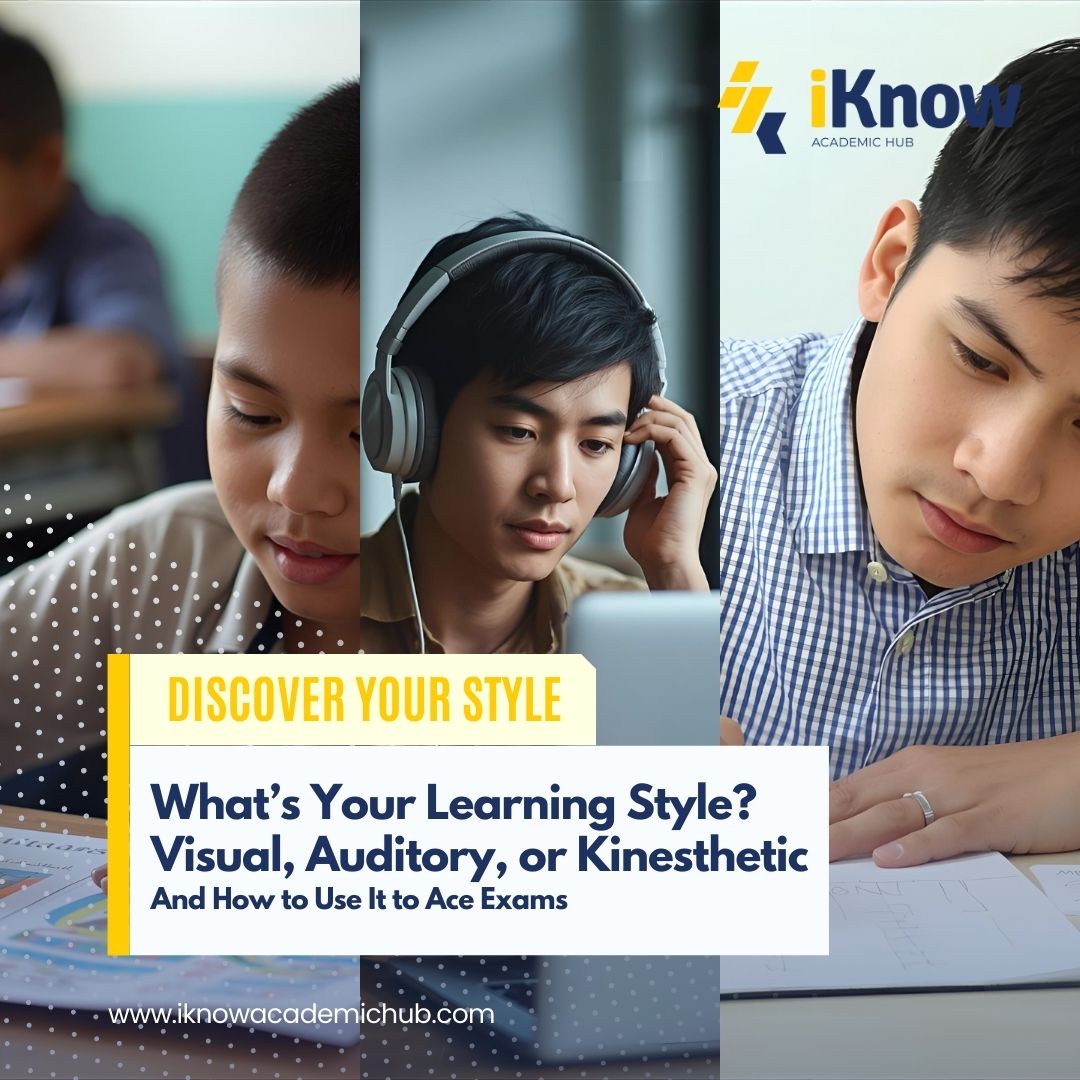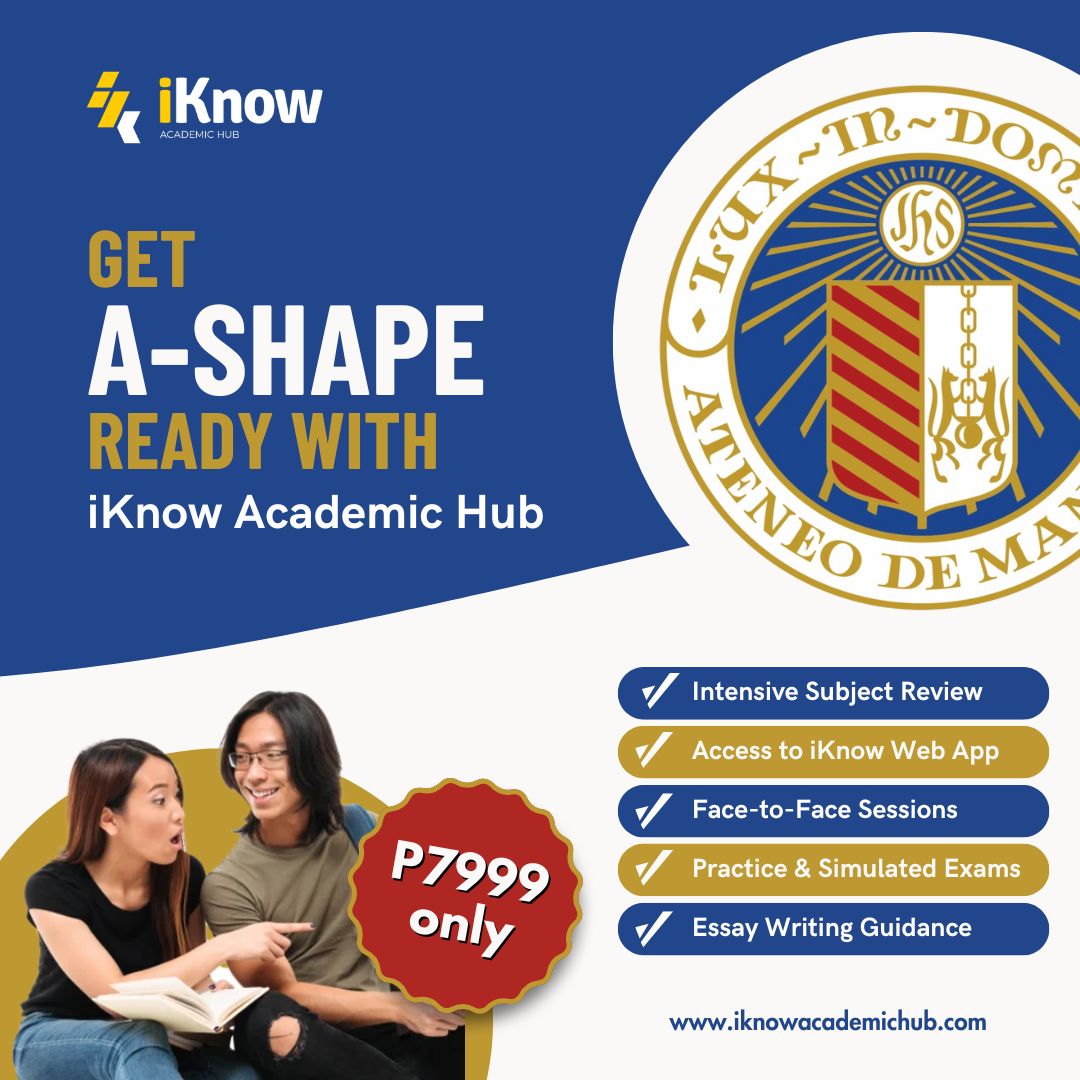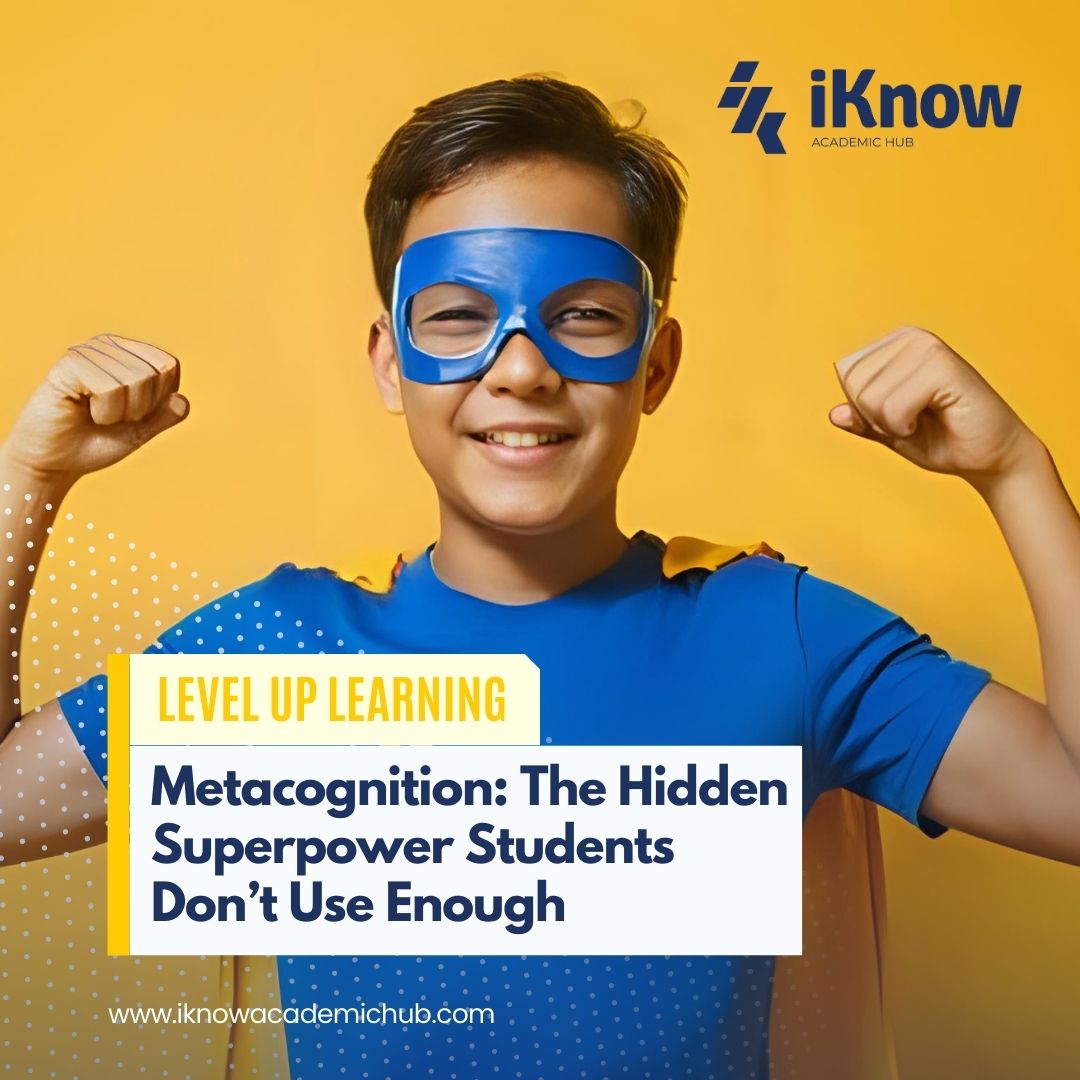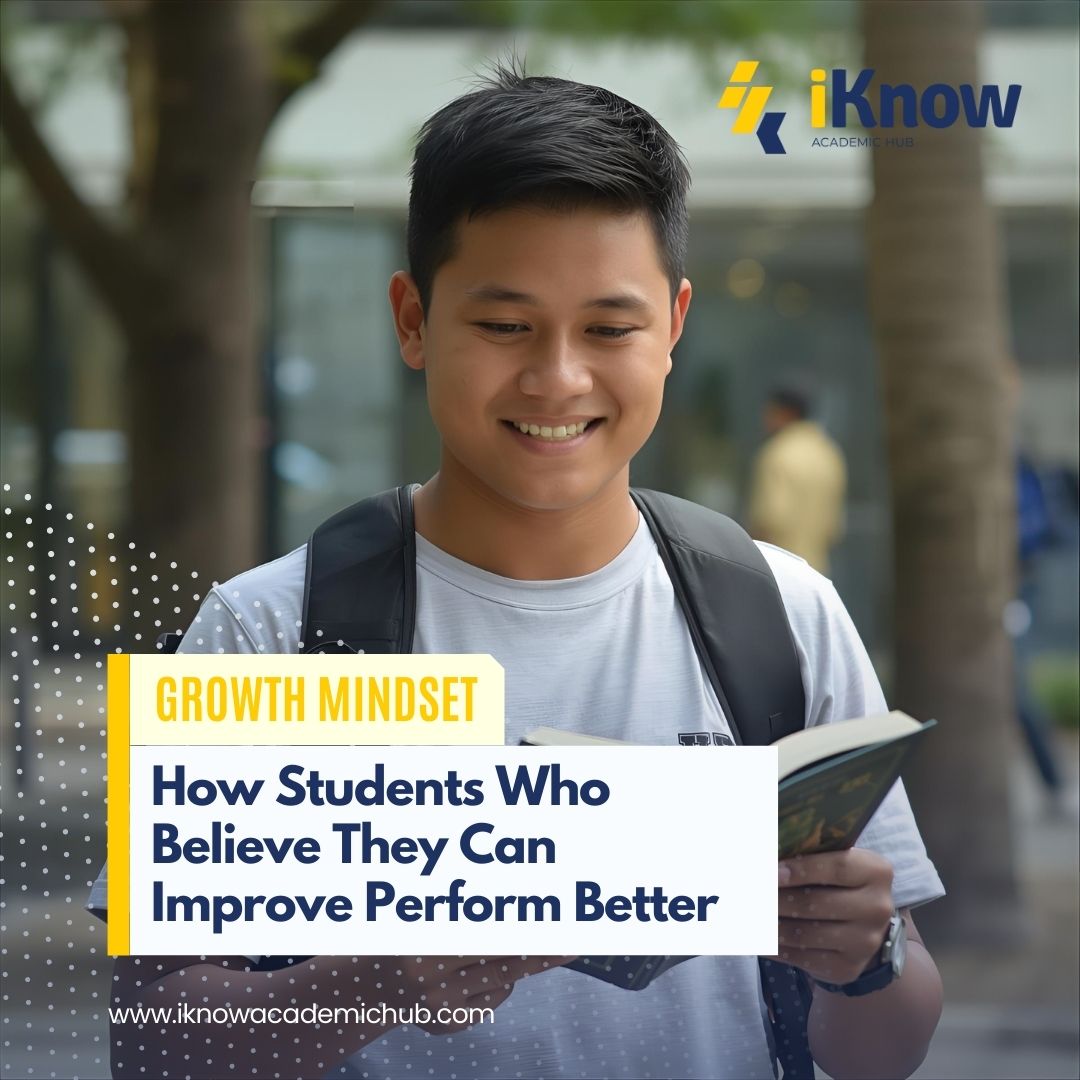What’s Your Learning Style? Visual, Auditory, or Kinesthetic — And How to Use It to Ace Exams
Sun Sep 28 2025

Every student has a unique way of learning. Recognizing your learning style can give you a powerful advantage, especially when preparing for exams. At iKnow Academic Hub, we believe smarter preparation builds stronger futures. By identifying whether you are a visual, auditory, or kinesthetic learner, you can maximize your study time and improve your results.
What Are the Three Main Learning Styles?
Visual Learners
Visual learners understand best through images, diagrams, charts, and written text. They often enjoy color-coded notes, flashcards, and mind maps.
Study tips for visual learning style:
-
Use diagrams, charts, and flowcharts when reviewing topics.
-
Highlight or color-code key concepts.
-
Watch educational videos or use interactive slides.
Auditory Learners
Auditory learners retain information best when they hear it. They benefit from lectures, discussions, and verbal repetition.
Study tips for auditory learning style:
-
Record lessons or review sessions and listen to them again.
-
Study with a partner and explain concepts out loud.
-
Use rhymes, songs, or acronyms to memorize facts.
Kinesthetic Learners
Kinesthetic learners grasp concepts by doing. They need movement, real-world examples, and hands-on practice.
Study tips for kinesthetic learning style:
-
Act out processes or walk around while reviewing notes.
-
Solve practice problems instead of just reading explanations.
-
Use physical objects (like flashcards, blocks, or models) to represent concepts.
Mini Quiz: Discover Your Learning Style
Answer these 6 quick questions to find out your learning style:
-
When you’re learning something new, you prefer:
A. Seeing pictures, diagrams, or written notes
B. Listening to explanations or recordings
C. Trying it out yourself right away -
In class, you remember best when:
A. Reading the board or handouts
B. Hearing the teacher’s explanation
C. Doing an activity or group work -
When studying at home, you usually:
A. Draw charts, highlight, or make visual notes
B. Read notes aloud or discuss with someone
C. Build models, practice problems, or act out ideas -
If you forget someone’s name, you’re more likely to recall:
A. What their name looks like on paper
B. How their name sounded when introduced
C. Where you met them and what you did together -
You find it easiest to learn from:
A. Illustrated textbooks and videos
B. Podcasts, lectures, and conversations
C. Experiments, fieldwork, and simulations -
During an exam review, you prefer:
A. Looking over summaries and charts
B. Listening to a classmate explain topics
C. Doing hands-on drills or practice tests
Scoring:
-
Mostly A’s → You’re a Visual Learner.
-
Mostly B’s → You’re an Auditory Learner.
-
Mostly C’s → You’re a Kinesthetic Learner.
How to Use Your Learning Style to Ace Exams
-
Visual learners should use diagrams, charts, and color-coded notes.
-
Auditory learners should record lessons, repeat concepts aloud, or join group discussions.
-
Kinesthetic learners should practice with drills, experiments, and problem-solving tasks.
By matching your study habits with your learning style, you’ll study smarter, not harder.
iKnow Academic Hub: Tutorials That Match Every Learning Style
At iKnow Academic Hub, we design tutorials and review programs with each learning style in mind:
-
Visual → slides, infographics, and color-coded notes
-
Auditory → lectures, discussions, and guided Q&A
-
Kinesthetic → hands-on drills, practice tests, and simulations
This ensures every student learns in a way that works best for them, especially when preparing for entrance exams like UPCAT, ACET, DCAT, and USTET.
Your learning style can shape how you study and how well you perform in exams. By discovering whether you’re a visual, auditory, or kinesthetic learner, you can make studying more effective and less stressful.
At iKnow Academic Hub, we believe smarter preparation builds stronger futures. Join our customized tutorials today and discover how learning your way can help you succeed.
Read more blogs
See all blogs
Get A-SHAPE-Ready with iKnow Academic Hub’s Exclusive A-SHAPE Review Program
Mon Sep 29 2025Are you aiming to enter Ateneo Senior High School (ASHS)? Then you already know that the A-SHAPE (Ateneo Senior High Admission Placement Exam) is among the most competitive entrance exams in the country. With thousands of students competing for limited slots, preparation is not just an option — it’s a necessity. That’s where iKnow Academic Hub comes in. Our A-SHAPE Review Program is designed to give students the edge they need to confidently face the test and secure their place at ASHS. Why Choose iKnow’s A-SHAPE Review? ✅ Intensive Subject Review We cover the core subjects included in the exam to build mastery: Mathematics English Abstract Reasoning ✅ Access to iKnow Academic Hub Web App Students get exclusive access to our web platform, packed with supplementary notes and practice quizzes they can study anytime, anywhere. ✅ Face-to-Face Sessions Study in a focused environment with small group classes (maximum of 12 students). Schedule (Sundays, 1:00–5:00 PM): October 12, 19, 26 November 9, 16, 23 December 7, 14 Venue: 3rd Floor, Regus Center, AMA Tower Residences ✅ Practice Tests & Simulated Exams Experience the real exam atmosphere through timed mock tests. ✅ Essay Writing Guidance Learn proven strategies to write strong essays that stand out in admissions evaluation. ✅ Test-Taking Tips Develop time management techniques and smart answering strategies. A-SHAPE Review Fee & Enrollment Fee: ₱7,999 only Slots: Limited to 12 students only (first come, first served) 👉 Register here: [Insert Google Form link] Important ASHS Admission Dates (SY 2026–2027) Sept 5, 2025 – Start of admission applications Oct 25, 2025 – Last day to create an application account Nov 7, 2025 – Deadline for payment of application fee Nov 21, 2025 – Last day for submission of filled-up application form Dec 5, 2025 – Deadline to complete the admission process & secure exam permit Jan 10–11, 2026 – A-SHAPE Examination April 2026 – Release of results (exact date TBA) June 2026 – Enrollment for SY 2026–2027 📌 Learn more about ASHS applications here: Ateneo Senior High School Admissions |Applying to ASHS Why Prepare Early? The competition for Ateneo Senior High is intense. Early preparation means: More time to master difficult topics. Consistent practice in test conditions. Developing the confidence to face exam day without panic. At iKnow Academic Hub, we don’t just teach — we train you to excel. With our structured program, expert mentors, and supportive environment, students are guided every step of the way toward success. Take the first step toward Ateneo Senior High today.Enroll in iKnow Academic Hub’s A-SHAPE Review Program and give yourself the edge. Register now to secure your slot. At iKnow Academic Hub, we believe that smarter preparation builds stronger futures. Join our programs today and let us help you achieve your academic goals.
Read more
Metacognition: The Hidden Superpower Students Don’t Use Enough
Sun Sep 28 2025Metacognition might sound like a complicated academic term, but it is actually a student’s hidden superpower. It simply means thinking about your own thinking. In other words, it’s the ability to step back, evaluate how you learn, and adjust your strategies when needed. Studies show that students who actively use metacognitive strategies perform better academically because they become more self-aware and intentional in their learning . At iKnow Academic Hub, we believe that empowering students with this superpower helps them prepare smarter, not harder, for entrance exams and academic challenges. What is Metacognition and Why Does It Matter? Metacognition has two main parts: Knowledge about your learning – understanding your strengths, weaknesses, and how you process information. Regulation of learning – planning, monitoring, and adjusting your study methods while learning. When students practice metacognition, they avoid the trap of mindless studying. Instead of rereading notes without purpose, they ask: Do I really understand this concept? Which review techniques help me remember better? What should I change if I keep forgetting details? This awareness makes studying more effective and efficient . How Students Can Apply Metacognition in Daily Study Here are practical steps students can try right away: Plan before studyingSet a goal: “I will solve 10 math problems and check which steps confuse me.” Monitor during learningPause and reflect: “Am I just memorizing words, or do I understand the meaning?” Evaluate after studyingAsk: “What did I actually learn? Where do I still get stuck?” By repeating these steps, students can train themselves to become independent, reflective learners. Why Parents Should Care About Metacognition For parents, encouraging metacognition means more than pushing for longer study hours. It means guiding children to study smarter. A child who can self-reflect learns resilience: they recognize mistakes, adjust strategies, and keep going. This not only improves grades but also builds lifelong problem-solving skills. Media How iKnow Academic Hub Builds Metacognitive Skills At iKnow Academic Hub, our tutorials and review programs are designed to help students become more self-aware learners. We integrate metacognition by: Encouraging students to reflect on mock test results and identify weak points. Teaching study strategies tailored to different learning styles. Guiding them to set realistic goals and monitor progress. Providing structured feedback so they learn to adjust and improve. Through this process, students don’t just memorize—they learn how to learn. That’s the true advantage when facing tough entrance exams like UPCAT, ACET, DCAT, or PSHS-NCE. Metacognition is a hidden superpower that many students overlook. By learning to think about their thinking, they can turn weaknesses into opportunities for growth. At iKnow Academic Hub, we believe smarter preparation builds stronger futures. When students gain the skill of self-awareness in learning, they are not only preparing for exams—they are preparing for life. At iKnow Academic Hub, we believe smarter preparation builds stronger futures. Join our programs today and unlock the learning strategies you need to succeed. References Dunlosky, J., & Rawson, K. A. (2012). Overconfidence in learning: Cause, consequences, and solutions. Educational Psychology Review.Flavell, J. H. (1979). Metacognition and cognitive monitoring: A new area of cognitive-developmental inquiry. American Psychologist.
Read more
Growth Mindset in Action: How Students Who Believe They Can Improve Perform Better
Sun Sep 28 2025Have you ever wondered why some students bounce back from failure while others give up? The difference often lies in their growth mindset. Students who believe that their abilities can improve through effort and effective strategies are more likely to perform better academically. At iKnow Academic Hub, we emphasize the power of mindset alongside tutorials and review programs, because smarter preparation goes hand in hand with believing in one’s ability to grow. What is a Growth Mindset? A growth mindset, a concept developed by psychologist Carol Dweck, refers to the belief that intelligence and skills are not fixed traits but can be developed through dedication and hard work . In contrast, a fixed mindset assumes that ability is innate and unchangeable. Students with a growth mindset: See mistakes as opportunities to learn. Embrace challenges instead of avoiding them. Value effort as the path to mastery. Accept constructive feedback to improve. Psychology Research on Growth Mindset and Performance Research consistently shows that adopting a growth mindset can enhance student performance. In one large-scale study involving over 160,000 students worldwide, those taught about growth mindset showed improved academic outcomes, especially among low-achieving students . Another experiment by Blackwell, Trzesniewski, and Dweck found that middle school students who were taught growth mindset principles earned higher math grades compared to their peers who were not . These findings highlight that belief in improvement doesn’t just inspire motivation—it has measurable effects on learning and exam results. Why Growth Mindset Matters for Filipino Students For Filipino students preparing for competitive entrance exams such as UPCAT, ACET, DCAT, and PSHS-NCE, pressure can be overwhelming. A growth mindset helps students: Build resilience when faced with difficult practice tests. Focus on progress rather than perfection. Reduce anxiety by framing challenges as learning opportunities. Parents can also reinforce this by praising effort and persistence, while schools and review centers can design learning experiences that reward progress. Growth Mindset in Action at iKnow Academic Hub At iKnow Academic Hub, we integrate growth mindset principles into our tutorials and review sessions by: Encouraging students to reflect on their learning process, not just results. Providing constructive feedback that highlights effort and strategies. Offering simulated practice exams that help students learn from mistakes. Customizing study plans that adapt to each student’s pace and learning style. This holistic approach ensures that students not only prepare for exams but also develop confidence and resilience—skills that extend far beyond the classroom. A growth mindset is more than a positive attitude—it is a scientifically supported approach to learning that helps students perform better. When students believe they can improve, they open the door to resilience, persistence, and academic success. At iKnow Academic Hub, we believe smarter preparation builds stronger futures. By combining expert tutorials, comprehensive reviews, and the power of growth mindset, we equip students to face any academic challenge with confidence. References Dweck, C. (2006). Mindset: The New Psychology of Success. New York: Random House. Yeager, D. S., et al. (2019). "A national experiment reveals where a growth mindset improves achievement." Nature, 573(7774), 364–369. Blackwell, L. S., Trzesniewski, K. H., & Dweck, C. S. (2007). "Implicit theories of intelligence predict achievement across an adolescent transition: A longitudinal study and an intervention." Child Development, 78(1), 246–263.
Read more




